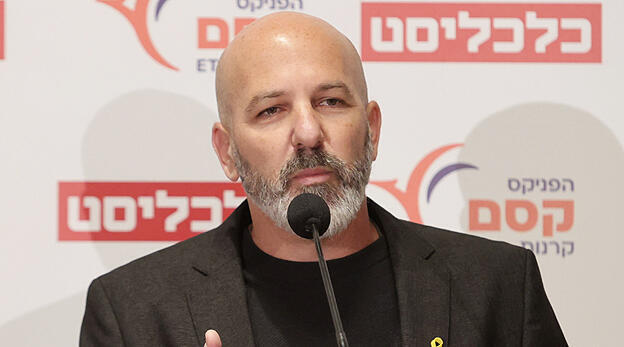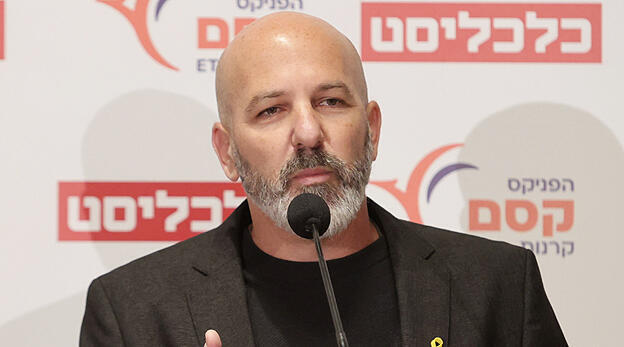
"The ultimate goal Nvidia is working towards is to create AI factories that turn data into knowledge"
"We have seen in the war how artificial intelligence can enable real-time decision-making and be very significant," added Nati Amsterdam, General Manager, AI, at Nvidia and Senior Country Director at Nvidia Israel, who set up Nvidia's AI operations in the country back in 2016.
"The ultimate goal that Nvidia is working towards is to create AI factories that know how to turn the data of every organization into a knowledge factory, said Nati Amsterdam, General Manager, AI, at Nvidia and Senior Country Director at Nvidia Israel, who set up Nvidia's AI operations in the country back in 2016. "Those who are able to take their data and turn it into intelligence can take a leap forward. We have seen in the war how artificial intelligence can enable real-time decision-making and be very significant."
Amsterdam made the remarks as part of Calcalist and Kesem’s capital market conference. According to him, the global cloud industry is undergoing a dramatic transformation, and two things are driving it: "The first is the whole issue of accelerating computing power, which are the GPUs that Nvidia makes, and the second is everything related to Generative AI, artificial intelligence that is changing every industry in the world.
1 View gallery


Nati Amsterdam, senior director & regional manager, Nvidia Israel
(Photo: Orel Cohen)
"The capabilities enabled by AI will make it possible to change areas such as customer service in financial entities, where smarter chatbots can be implemented, and also in the worlds of algo-trading and risk calculation. For example, if I am buying a house and a chatbot appears in front of me that doesn't know it's my third house, but thinks it's my first house, this is problematic. We'd love to see the banks and financial institutions take a bigger leap and adopt technologies in the fields of AI."
According to Amsterdam, artificial intelligence has enormous global effects, from the health field to the industrial field. "One of the most significant areas concerns the ability to reach quick results when it comes to drug development. AI makes it possible to decode genetic sequences, develop the entire field of drug discovery and understand how to assemble new drugs from proteins.
"In the past, the process of deciphering the human genome took a lot of time, and today, with the help of AI, it can be done much faster, and in this way reach faster approval for new drugs."
According to Amsterdam, AI also plays a major role in the field of medical devices and enables countries that do not have advanced medicine to receive services at a high level that were not possible previously.
"Another area in which we see change is the industrial area," continued Amsterdam. "Today it is possible to take physical things and create 'digital twins' for them. The idea is that you can create a kind of digital map and then apply physical laws to it and observe what happens."
Amsterdam cited the car giant BMW which is building its factories of the future using "digital twins". According to him, "In Israel there are hundreds of company development centers, and the fact that a digital twin can be created for each of them will allow companies to dramatically reduce their investments when entering new worlds."
Another example presented by Amsterdam is the Nvidia Earth 2 project, in which the company created a platform that can model the climate changes in the world, and see how they will affect us.
"In addition to that, we are also transforming the financial market," Amsterdam said. "Today we have the ability to teach a machine to understand financial language, the language of a broker in the capital market, and the meaning is that it is possible to produce a computer that knows how to ask the right questions, which makes it possible to produce other intelligence. Financial organizations have a great deal of data about customers, but they do not have the ability to produce bidirectional communication.













